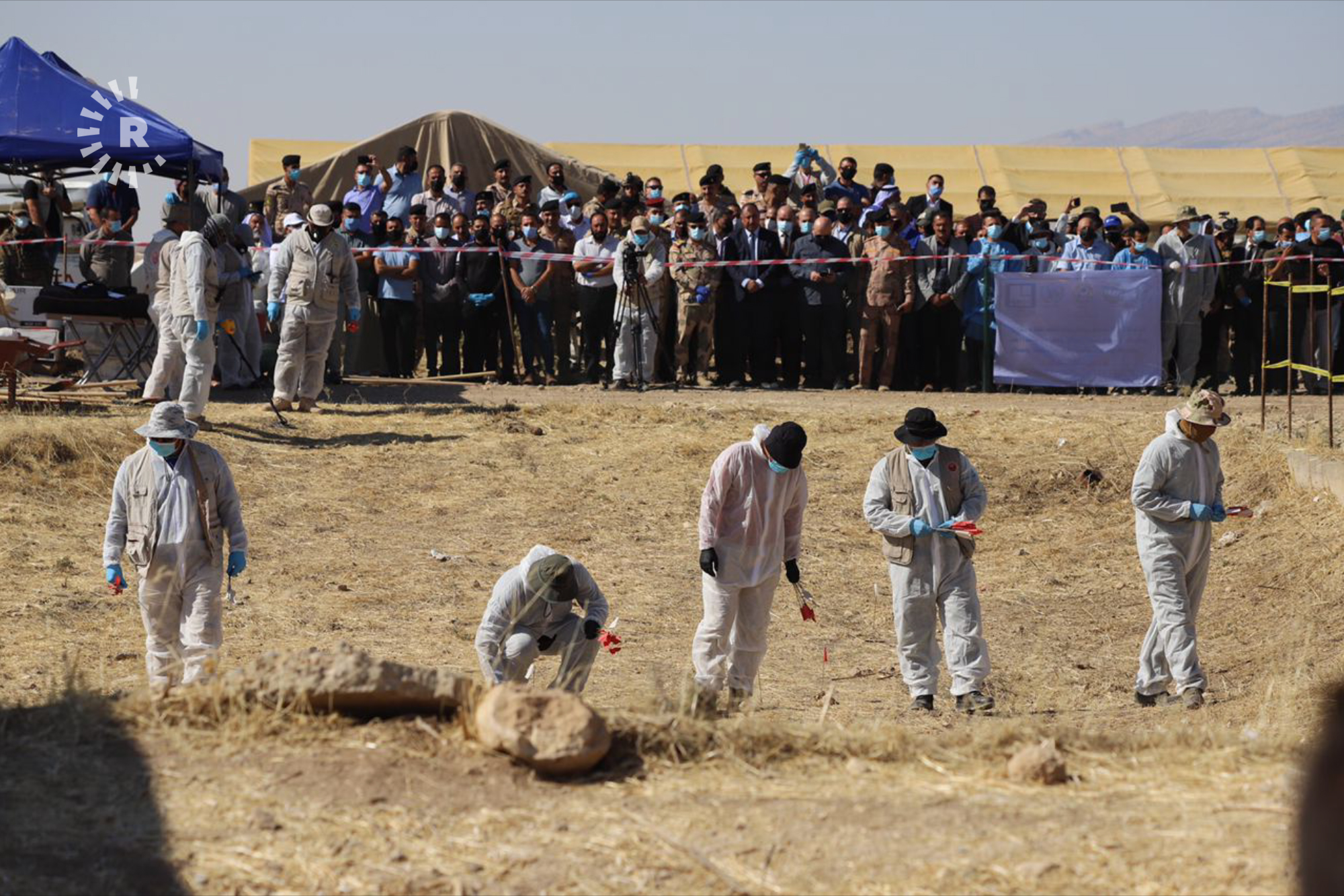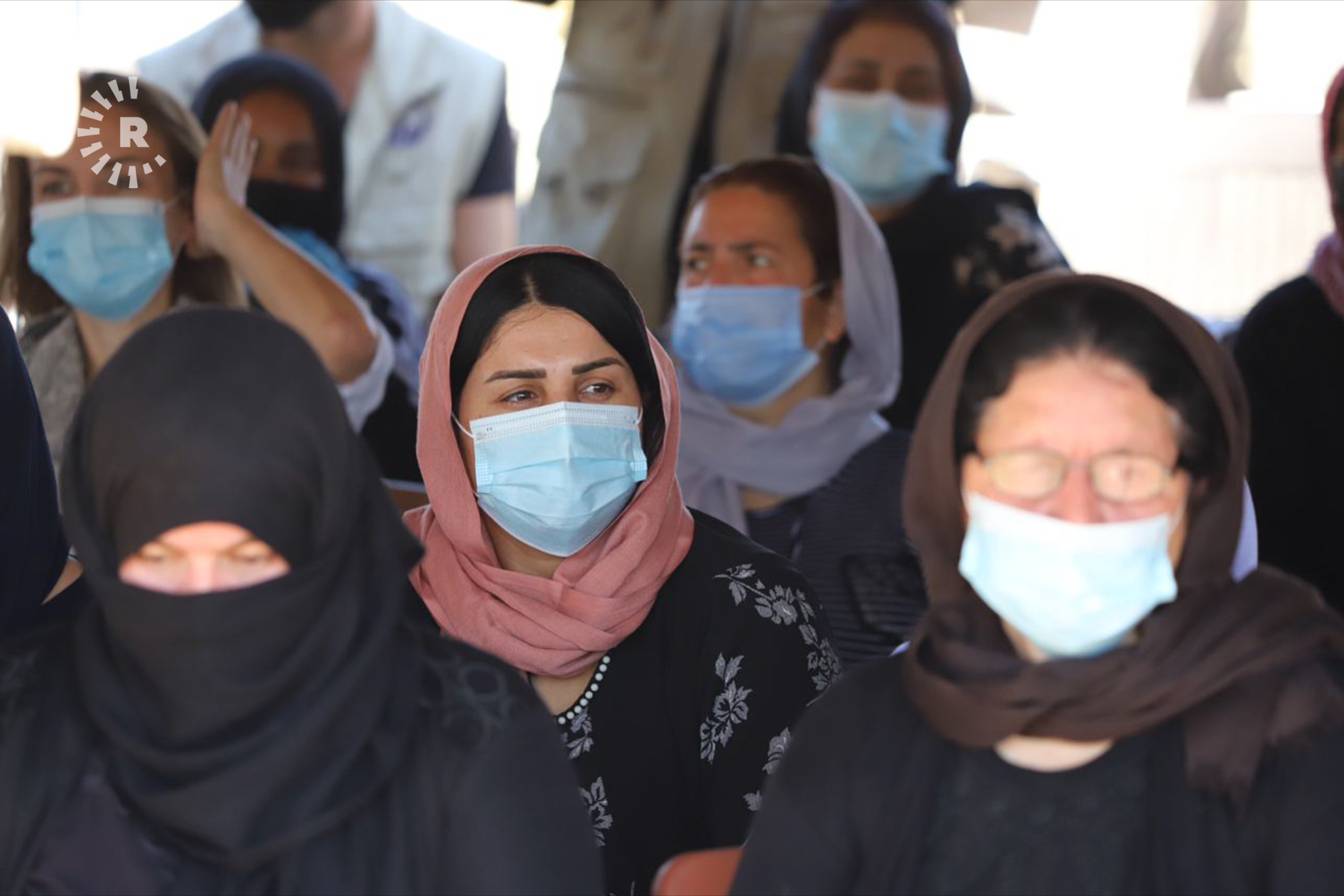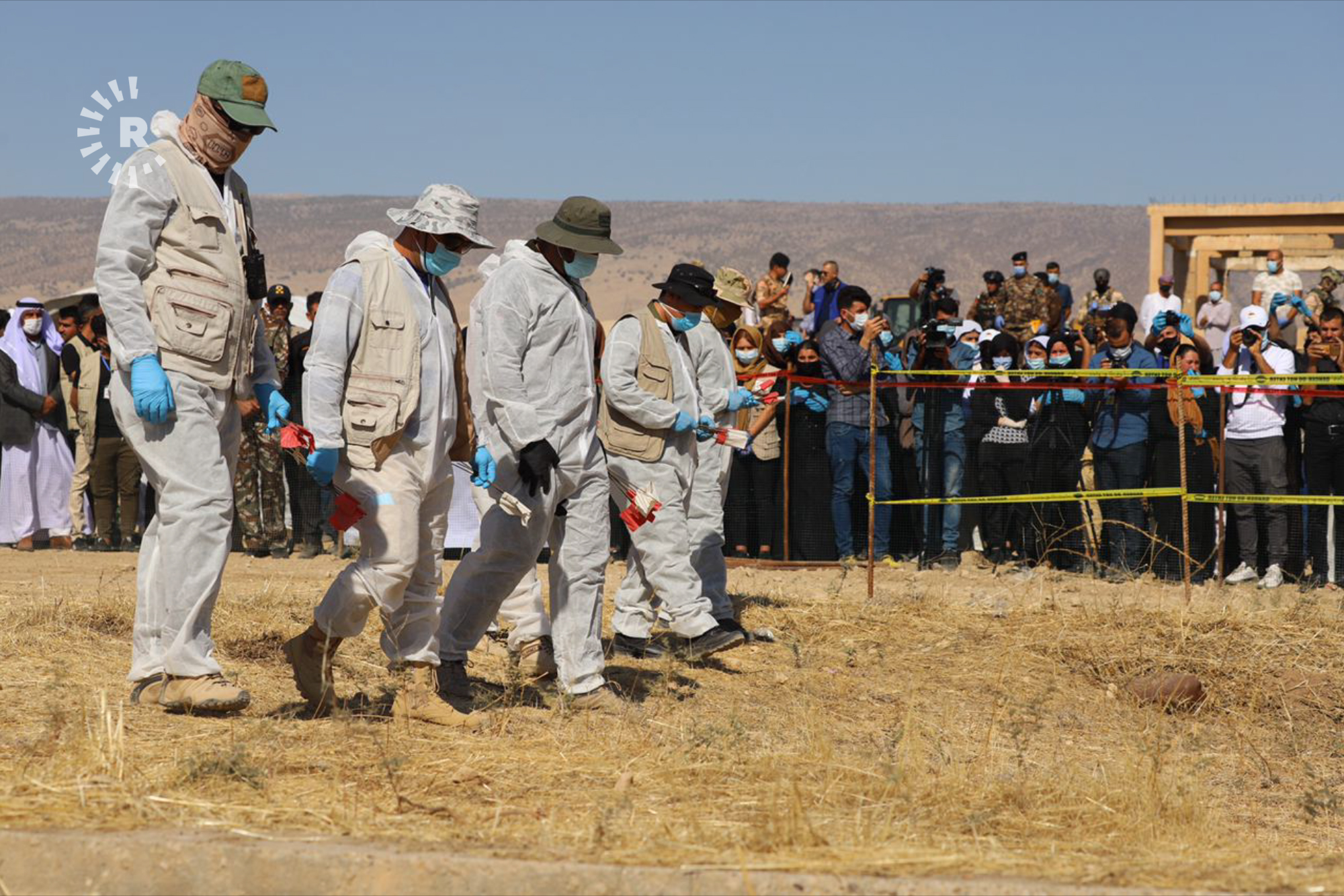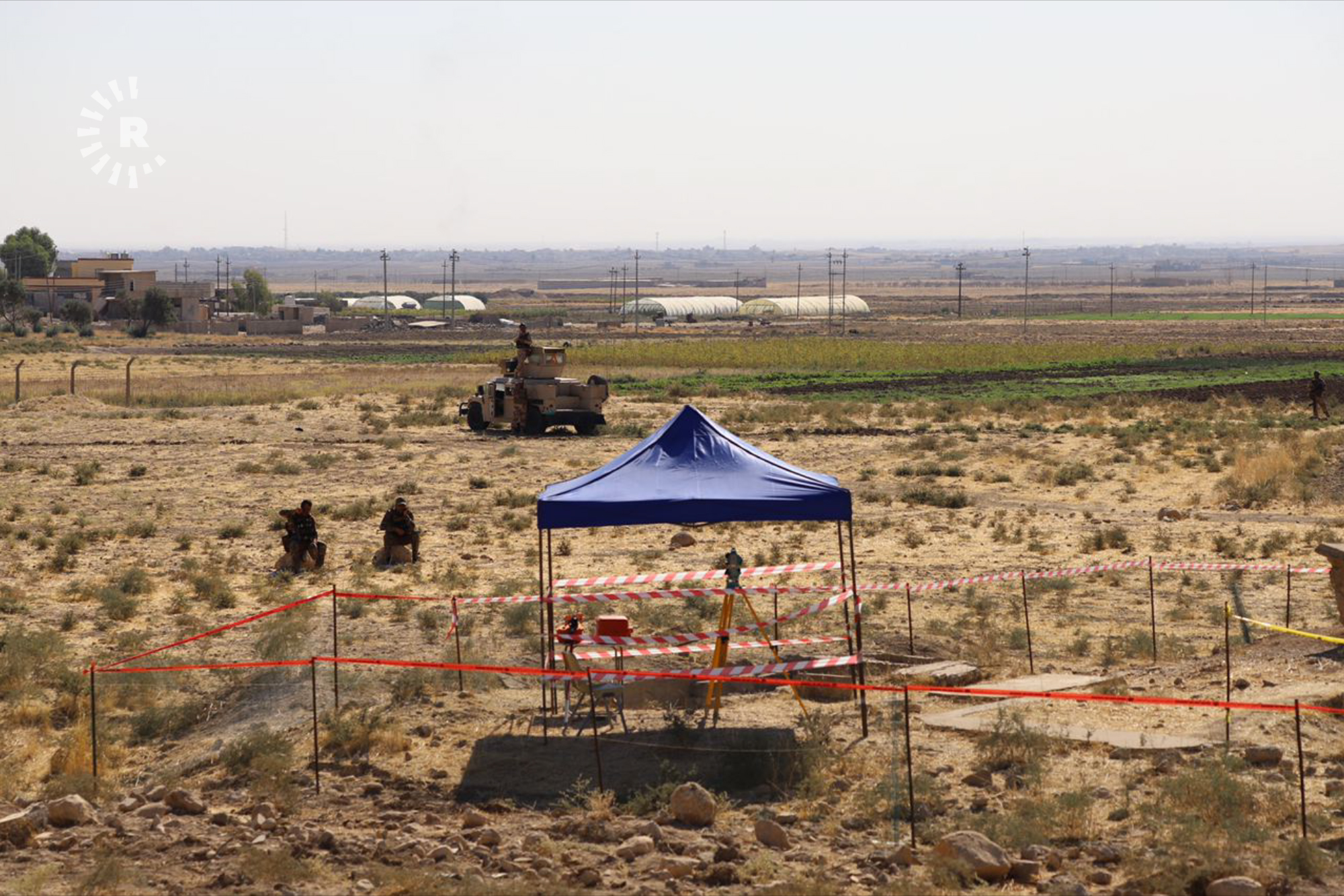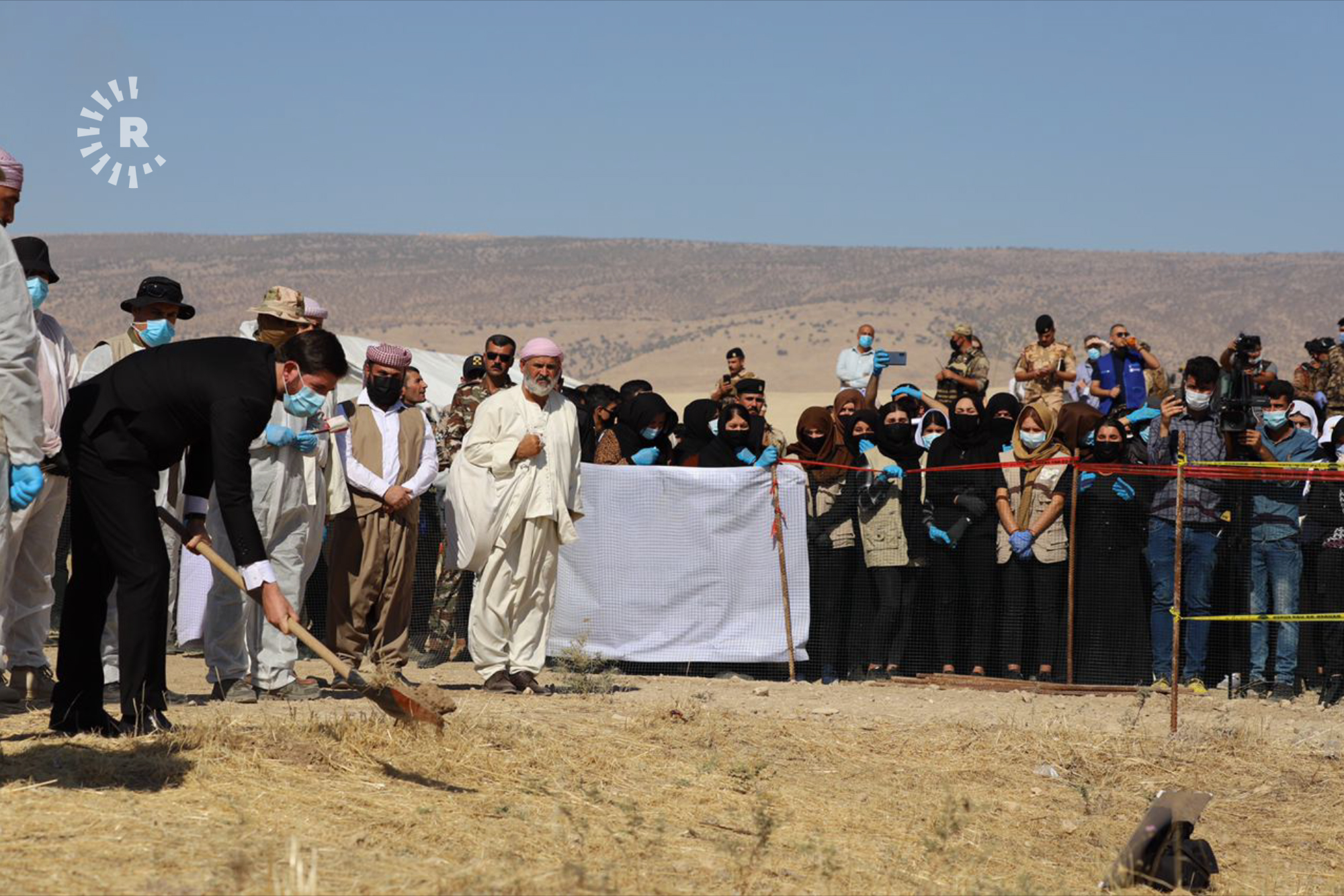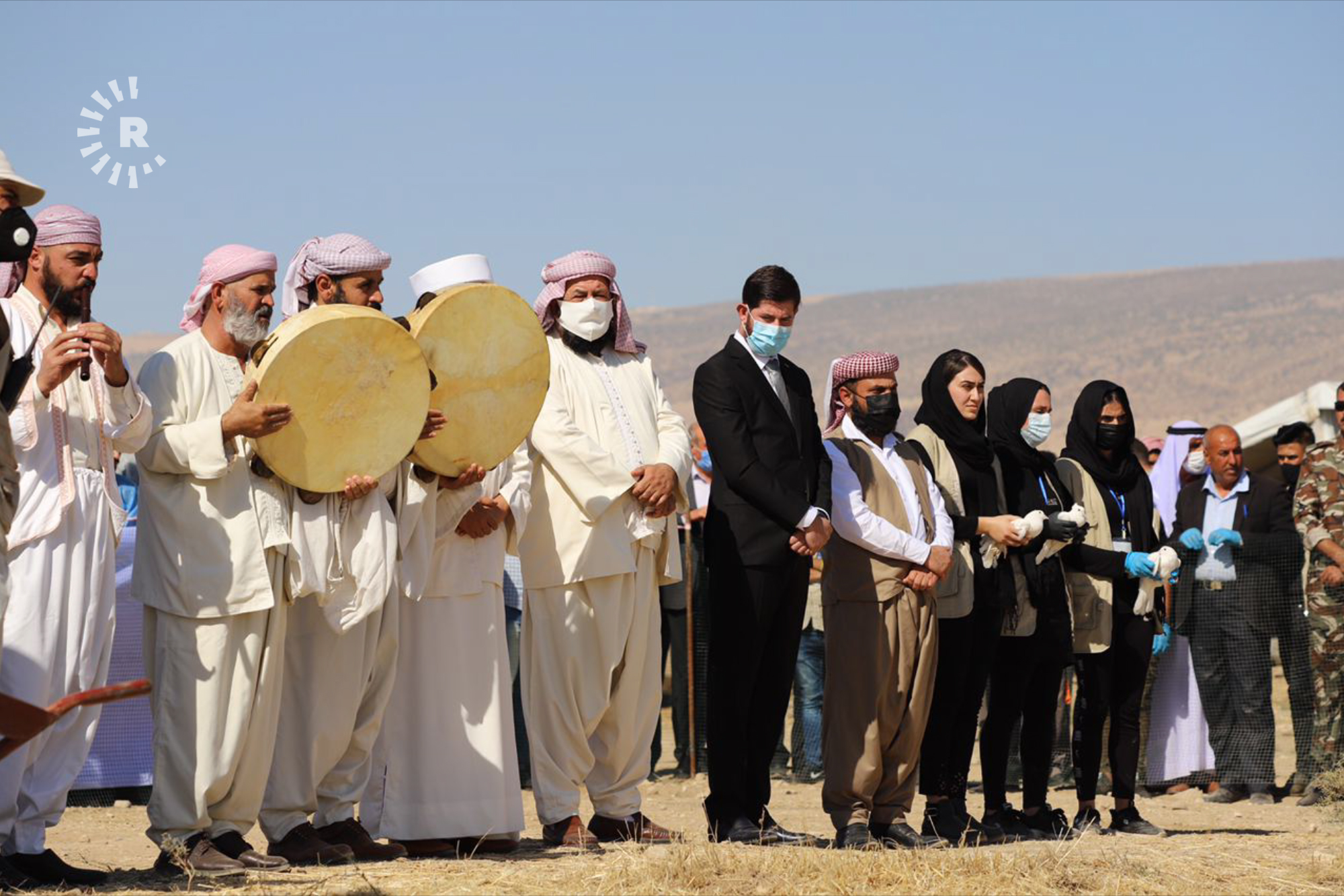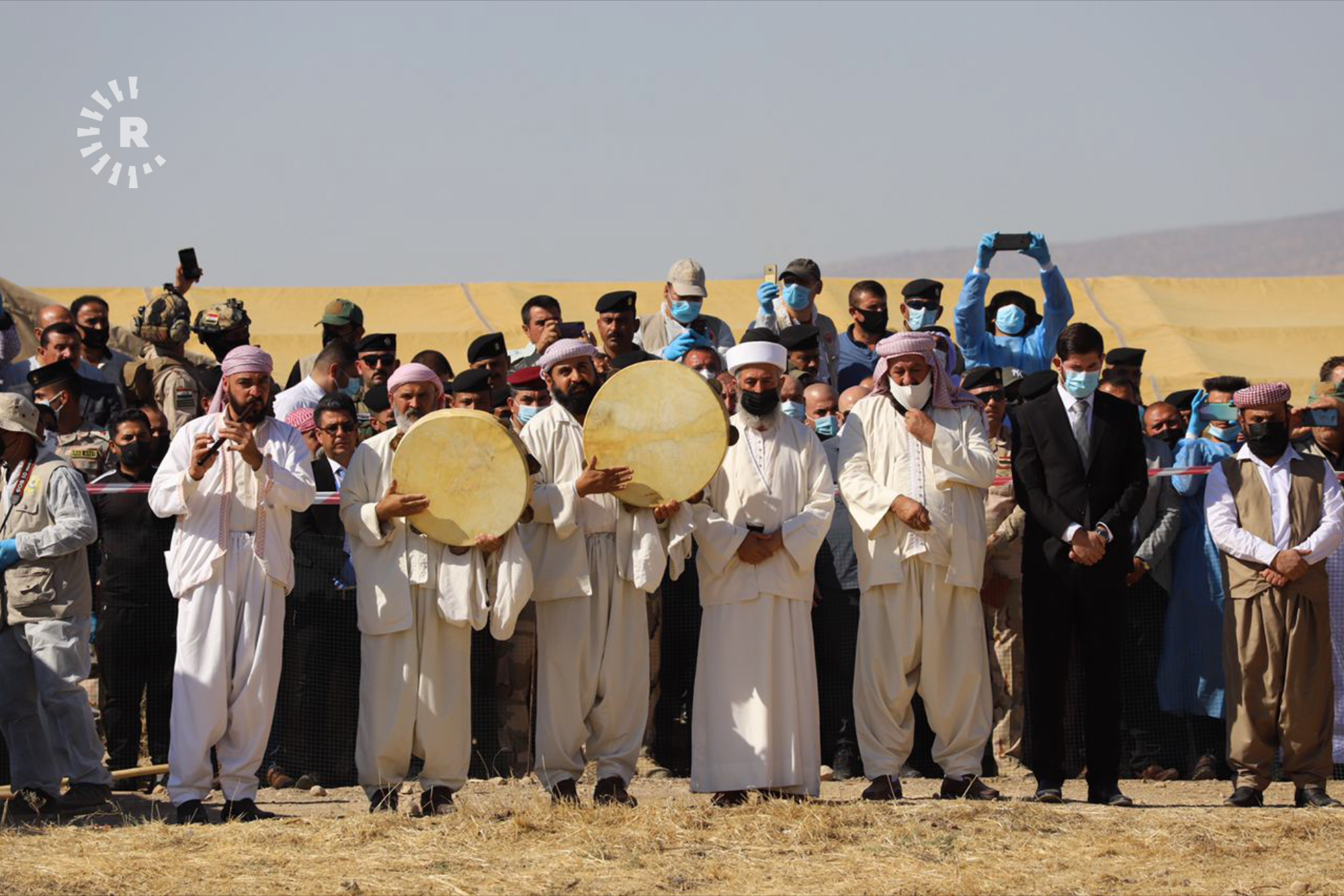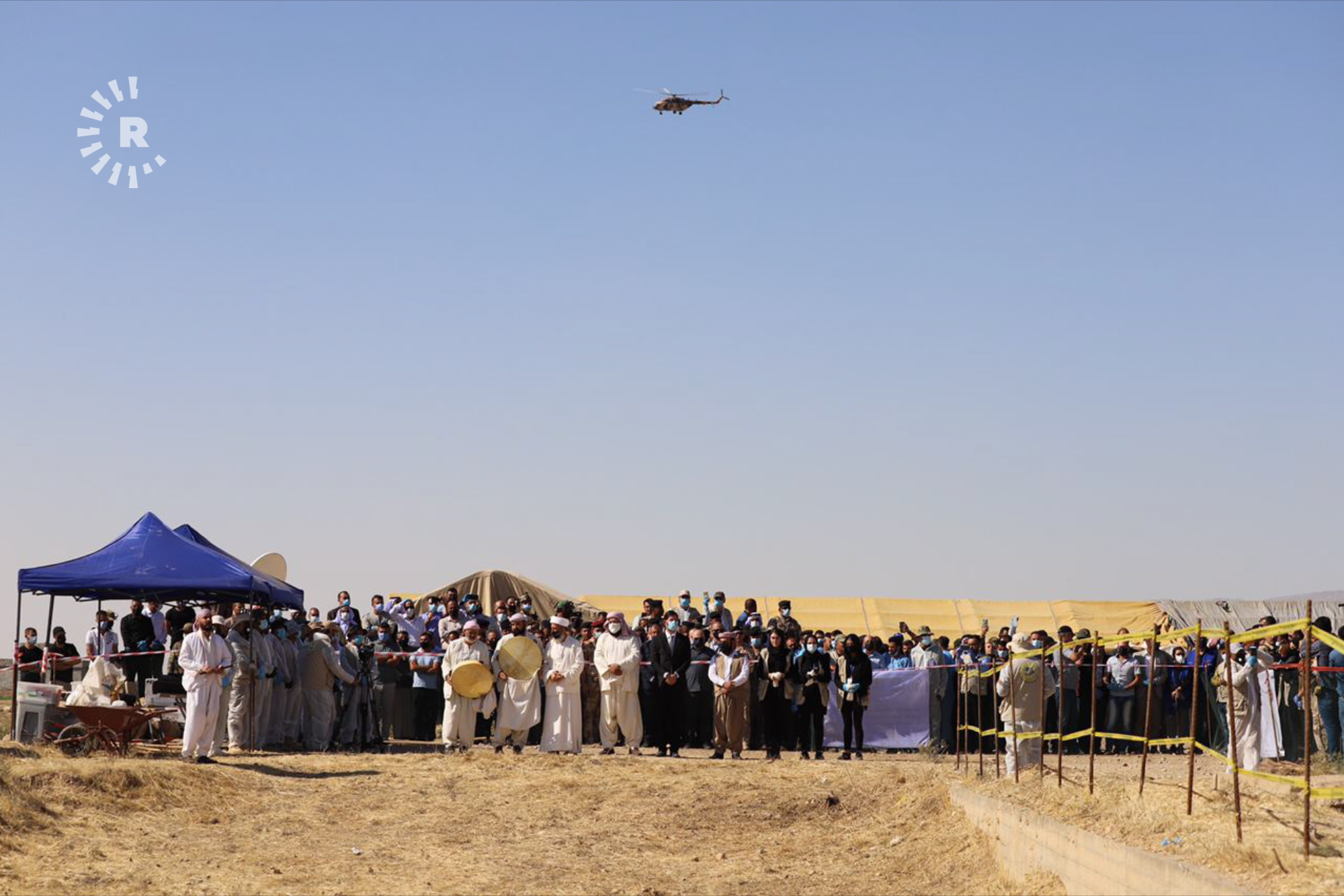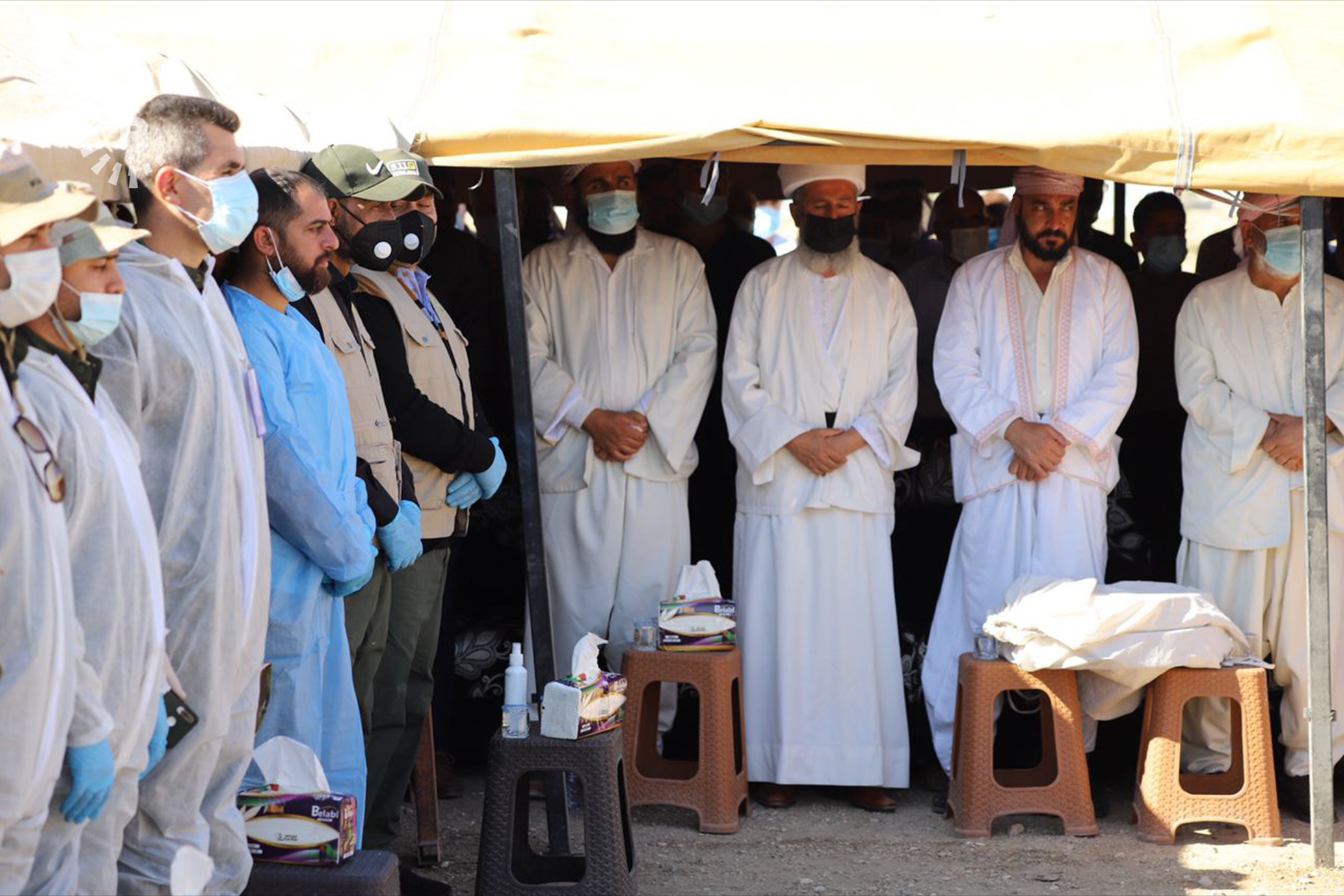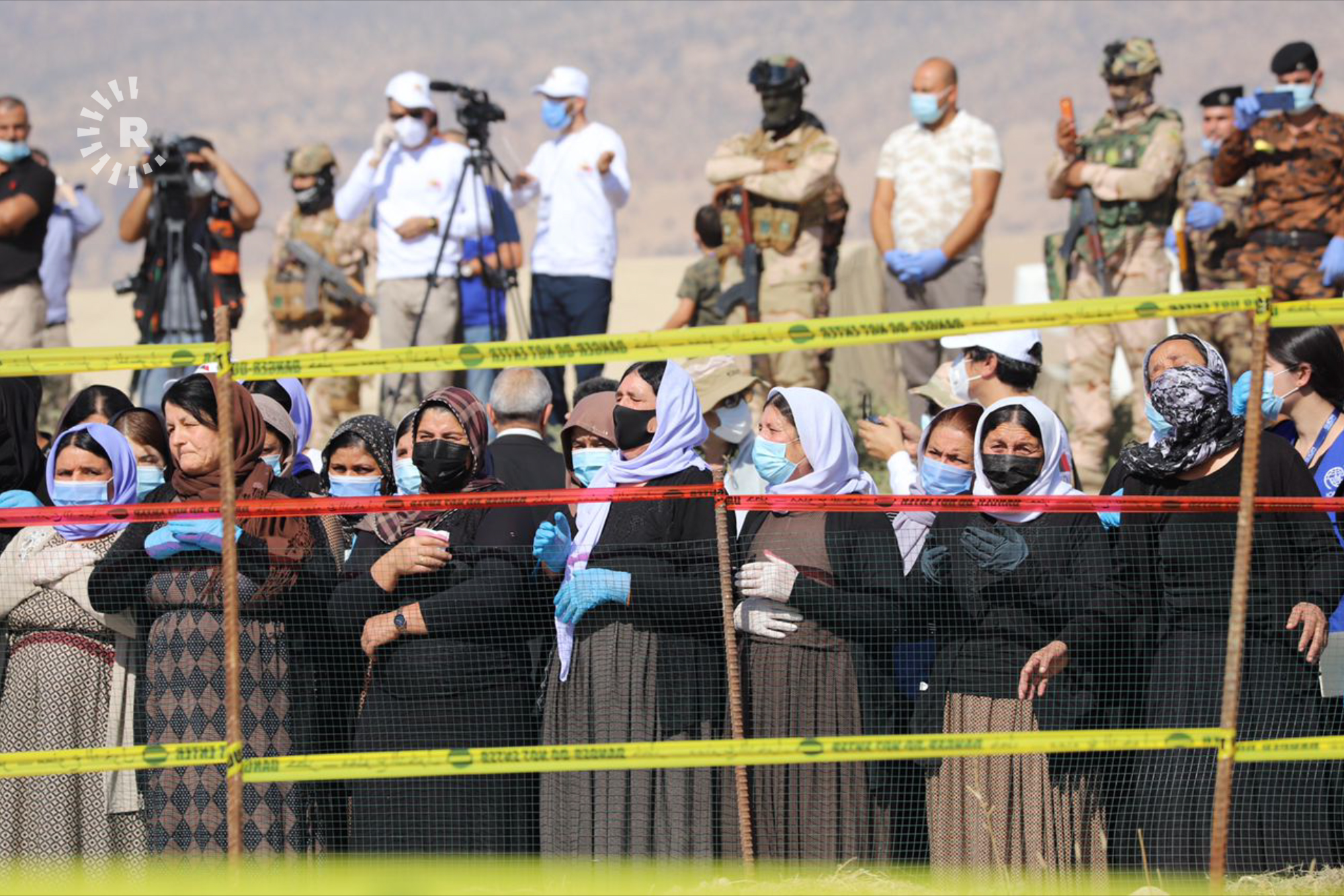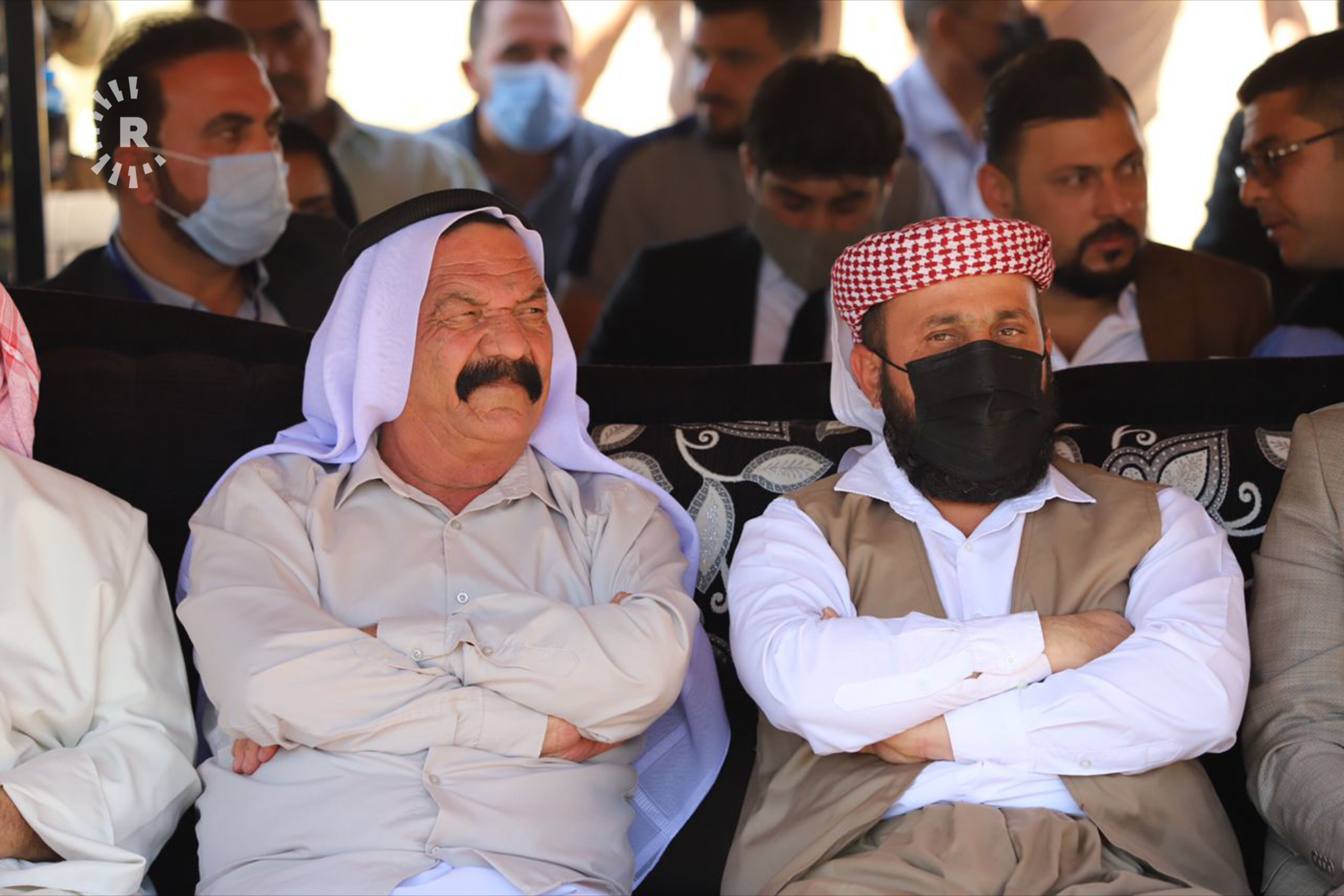SHINGAL, Iraq — Several hundred people came together on Saturday on the southern side of mount Sinjar for a ceremony marking the start of the exhumation process of a mass grave of the Islamic State (ISIS) group victims in the village of Solagh.
“In Solagh subdistrict, ISIL [Islamic State, ISIS] militants committed mass killings of Yazidi women, and buried them in a mass grave. The remains of two such graves will be exhumed to then be matched, based on DNA sampling, with surviving family members who finally get the opportunity to lay their loved ones to rest, appropriately and according to traditions,” reads a press release.
The ceremony, which included Yezidi religious rites, was attended by roughly a hundred Yazidi men and women who lost someone to ISIS, when the group swept across northern Iraq in August 2014, committing genocide against the ethno-religious minority.
Family members of victims of ISIS will be invited to provide DNA samples to help the investigatory teams identify the remains. Family members can also provide blood samples at Kocho primary school next week and in Shingal hospital.
Exhumations in Kocho began in March 2019. The grave to be exhumed on Saturday is the last of 17 mass graves in the village south of Shingal mountain, according to Yezidi advocacy group Yazda.
The mass grave in Solagh contains the remains of more than 70 people, all women, Sirwan Jalal, head of the Kurdistan Regional Government (KRG)'s mass graves team, told Rudaw.
“They were brutally martyred by Daesh [ISIS] terrorists. They are over 40 years old and include pregnant women,” he said.
Also in attendance at Saturday's ceremony were representatives of the Iraqi government, United Nations investigation team to promote accountability for crimes committed by ISIS (UNITAD), other international organizations, and Yezidi NGOs.
The mass grave to be exhumed next in Kocho is believed to contain the remains of more than 50 men and boys from the village, according to Jalal.
Photos by Fazel Hawramy / Rudaw
